Graham Reid | | 7 min read

To put it
bluntly, Sarah Whitelam didn't muck around. The day after John Nicol
sailed off for Britain – the man with whom she'd had child and
promised to remain true to in the days before his departure – she
recovered from her disappointment and married the convict John Walsh.
These
were very different times – the colony of Sydney in 1790, just two
years after the First Fleet arrived – and Sarah, a convict
transported for seven years for stealing lengths of material from a
Lincolnshire shop, was simply being practical.
People
were forced to make whatever living arrangements they could. There
was much intercourse – often sexual – between the thousand or so
inhabitants of this remote outpost, and lines of class or position so
pronounced in Britain were obliterated by human need and their
situation.
And they
were a mixed bunch, not simply woebegone petty thieves or murderous
thugs which Britain had cast to the far end of the world.
D'Arcy
Wentworth, for example, was a highwayman-cum-surgeon not yet 30 and
had come from a decent family in Ireland. He had become something of
a cause celebre
and his trial for robbery was attended by members of the royal
family.
This
dashing rogue – later a partner in the building of Rum Hospital in
Sydney, the superintendent of police and a president of the Bank of
New South Wales – arrived in the colony alongside political
dissenters, criminals, the highly literate and dirt poor Irish
peasants whose sense of geography was so ill-informed they thought if
they escaped over the hills they would be in China and could start
life anew.
These are
the characters – Aboriginals and other explorers also – who
populate Thomas Keneally's ambitious history Australians:
Origins to Eureka (reviewed here), the
first volume of an intended trilogy tracing the development of the
country from pre-history to the present.
Keneally's
title is instructive. His is a story of people and in these 600 pages
they breathe and sweat, fight and fiddle the books, are heroic and
hateful. We see them at their best and worst. And, 74-year old
Keneally hopes, in an honest portrayal.
This
personable author unashamed of a casual profanity laughs about the
history texts he endured as a schoolboy (“back before the pyramids
were built”) in which “the early governors were ponces in wigs
and dressed in uniforms we'd never seen anywhere”.
“We
didn't have a sense of them as people at all, of [first Governor
Arthur] Phillip sitting by his fire with his housekeeper – whom he
was 'on' – and feeding his pet possum a grain of rice at a time.
“But he
was probably in his shirtsleeves and thinking, 'My God, if those
problems with France develop [the British government] are going to
forget us and these people here are going to be eating each other'.
“You
know, Phillip was an Enlightenment man enchanted by the Aboriginals –
and was light years more advanced in his thinking than John Howard
ever was.
“The
idea of all that is more interesting than this bloke in a strange
uniform.”
In the
early 60s when he began writing, Keneally (“it's Tom”) promised
himself he would try to write a book every year to 18 months, and
he's been largely on target. He has written dozens of novels (“In
fiction you try to get to the truth by telling lies”) including The
Chant of Jimmie Blacksmith
which was shortlisted for the Man Booker Prize in 1972 and
Schindler's Ark
(adapted for the film Schindler's
List by Steven Spielberg,
and which won the Man Booker in 82).
He has
also written plays and almost two dozen works of non-fiction, notably
histories of Australia including The
Great Shame and A
Commonwealth of Thieves, The Improbable Birth of Australia
in 2005, material from which is assimilated into Australians:
Origins to Eureka.
Of
Irish-Catholic ancestry, Keneally is founding chairman of the
Australian Republican Movement, one of his country's Living
Treasures, a passionate rugby league follower (Manly Sea Eagles) and
laughs about his work methods which he says lack discipline.
Unlike
many authors, he sets himself no daily word-count goal, and the only
ritual he observes is provided by the laptop: “It starts humming
and that causes the brai to secrete chemicals which say, 'Pull your
thumb out and get a move on'.”
Although
he has written about American and Irish history, it is that of his
own country which he finds endlessly fascinating and tries to
humanise, to get its founders “off the plinth and into their shirt
sleeves”.
He takes
great amusement in speaking of Sir Henry Parkes (1815-96), the
“Father of Federation”, who was perpetually in debt and promoted
people to the Legislative Assembly who would lend him money.
“That
was his lifetime weakness. At 80 he was still being harried from
house to house and although a consumate politician he who couldn't
manage his domestic affairs. Once you know that he's no longer a
ponce on a plinth.”
If the
cast of Australians
is colourful, the rapid pace of the country's development is due to
this crucible of political dissenters which Britain had exported,
many of whom had a history of social awareness and a desire for
political justice.
“Very
early on you had people who saw themselves as political prisoners and
better than those who jailed them.
Australians
also shows how political developments in Britain and the
revolutionary spirit in France and the United States impacted on the
fledgling colony. Far from being remote and removed, with every new
arrival came political ideologies.
“Most
societies begin with Eden and go from there, America begins with the
redeemed arriving at Plymouth Rock, people too good for Britain,”
he laughs. “And its all upward and onwards.
“But we
began at the bottom. Ours were selected not by God for a garden, but
by what they called 'the best judges in Britain'.”
Yet with
two decades this “criminal kingdom” was peopled by those who, as
historian Alexander Harris wrote “are growing up a race by
themselves; the fellowship of country has already begun to
distinguish them and bind them together in a very remarkable manner.
Whenever they come in contact with each other, even when considerable
differ of rank exists, this sympathy operates strongly”.
“One of
the reasons [Australia] worked was the leavening of stroppy bastards
who resisted in all manner of ways and the reason is that the dream
of remote places, of more equitable places, attracts radicals.
Parkes, who was a Chartist when he was young, emigrates in part
because of this inherent promise in the place.”
This
first volume takes the history to the strike at the goldfields of
Eureka in 1960, the second volume on which Keneally is currently
working will end with the fall of Singapore in 1942, both pivotal
events which changed the way Australians perceived themselves and
their position in the world.
“I took
this to 1860 because that's the beginning of representative
government. Both our countries produced extraordinary institutions
for their time even though they weren't perfect democracies in the
absolute Hellenic sense of the word.
“Even
though they appointed upper houses with rich old bastards who sat on
legislation, the institutions for their times were revolutionary and
were largely in place by 1860. “The fall of Singapore changed the
geopolitics of the world. We'd spent our entire history up till then
wishing Asia wasn't there . . . when [Singapore fell] a whole new set
of priorities and realities hit us.”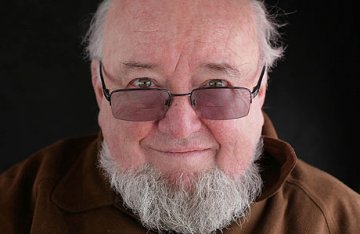
Keneally
says what fascinates him as a historian – and he acknowledges
academics “not infected by literary theory” who have done social
and historical research – is that because Australia and New Zealand
are relieved of emperors, great captains and kings, “we are able to
concentrate on humbler history, but history which nonetheless shows
the contours of development of liberal democracies”.
“We are
often benighted people but you've got these extraordinary experiments
in liberal democracy in the 19th
century and whose traditions – despite the best intentions of
bureaucrats and politicians – have not deserted us yet.
“Our
history is rich in social issues and in the question of the
transplantation of culture and ideas, and how obscure people
blessedly kept an indicative journal of a major contours of our
development.
“It
sounds dull, but when you descend into the journals you see the daily
squalor and endeavor and ambiguity in 19th
century New Zealand or Australia.”
And in
Australians
the people's voices come through as the long, often brutal, arc of
history unfurls.
“Australia
never stopped being a convict settlement,” laughs Keneally. “The
Brits have this habit of sending their economic, social or academic
failures to Australia.
“So you
blokes in New Zealand think we're rough trade, but it's incredible we
can even use a knife and fork.”

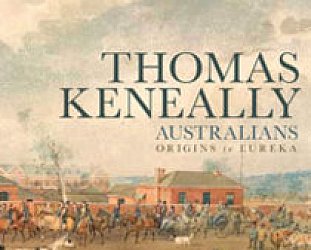
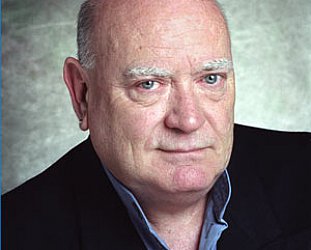
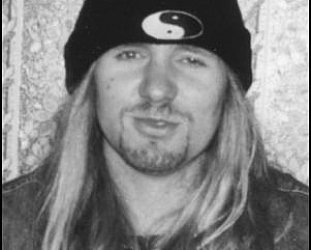
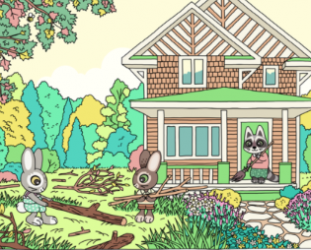
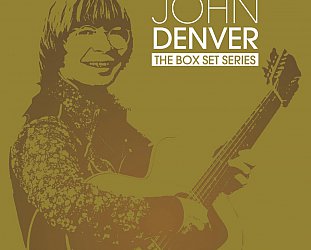
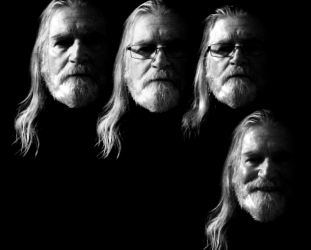
post a comment